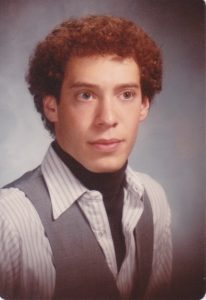It has long been said that canines of a certain age are incapable of mastering new tricks. As a proverbial long-in-the-tooth pooch myself, I thought it might be amusing to test the cliché. And, as it happens, I have a great excuse to do so, which I will explain in just a moment. So, this old dog is doing more than just chase his tail.
Not so very long from now, Nancy and I will be heading to Italy for a few weeks. There, we will spend time in Rome, Venice, Florence, and the Tuscan and Umbrian countrysides. This was a trip we had hoped to take to celebrate big birthdays that we both endured survived celebrated back in 2022/2023. Events intervened. But we are finally going this year, and we are very excited.
In preparation for the trip, we are both learning Italian on our phones using DuoLingo.
Okay, a few things. DuoLingo is hardly a rigorous way to approach learning a language. We know this. There are other ways we might have gone about learning Italian had we more time and fewer things on our collective plate. But I have a deadline, she has work to get done, and we wanted to make this fun, as well as useful. And fun it is.
I took years and years of French when I was in junior high and high school, and I was a competent if unspectacular student of the language. I never really mastered French, but I learned a lot, and could probably have stumbled my way through a simplistic and stilted conversation with a patient, generous native speaker of the language. Sadly, as it turns out, these are somewhat hard to find . . . .
More to the point, though, I never enjoyed French class. This was my own fault. I was lazy, and languages take work and patience and more work. My teachers were, all of them, good at their jobs, although there was one, who I had my sophomore year in high school, who merits detailed mention. I won’t give her name, but I will say this: Our class met right after lunch, and she was reputed to be a bit of a tippler who apparently built up quite a thirst during her morning classes. As a result, after imbibing enjoying her lunch, she would return to the classroom in an alcohol-induced temper, and with her accent rendered nearly impenetrable by her “meal.” For some reason, she liked me, which is good, because otherwise I would have gotten the grade I deserved . . . .
DuoLingo works for me because it gamifies the process. Like a hamster batting at a lever and being given little food pellets by way of reward, I do my language exercises, getting my little dopamine rush from the “ding-ding!”s of my phone and the treasure chests of virtual gems the app gives me periodically. Am I learning Italian? Um . . . sure. I’m picking up words that I might need in restaurants and bars and stores and hotels. I can say, “Salve! Piacere!” which means, “Hello! It’s nice to meet you!” I can say “thanks” and “your welcome,” “good morning” and “good evening,” “I’d like the chicken” and “I need the bathroom.”
No, that’s not much, but Nancy and I are still learning (she is ahead of me, having started earlier), and more to the point (and in all seriousness), we think part of the importance of this is making the effort, not being the infamous “ugly Americans,” who just show up in a country expecting everyone else to speak English to make them comfortable. We want to be able to show that we have cared enough to learn something about the country, including how to make ourselves understood there. Yes, we will absolutely need help from English-speakers in Italy, but we won’t be helpless, and we won’t be assuming it’s the job of every person there to accommodate us.
So that’s my new trick. Not bad, right? Not great, but not bad.
I will close with this story that my father used to love to tell. Years and years ago, he and my mom traveled to Italy, starting their trip in Rome, as Nancy and I will do. My father had picked up a few words of Italian somewhere. From a book? From someone he knew in New York City? From a TV show? Who can say? But he had convinced himself that he could fake his way through a conversation in the language. He and Mom were trying to find some tourist site — a museum or something — and he approached an Italian police officer on the street and asked the man how to find the museum, using his best broken Italian. The officer eyed him for a moment, and then said, in flawless English, “Three blocks down and make a right; you can’t miss it.”
My father and mother laughed. And so did the police officer. Which, ultimately, is the point.
Have a great week.









